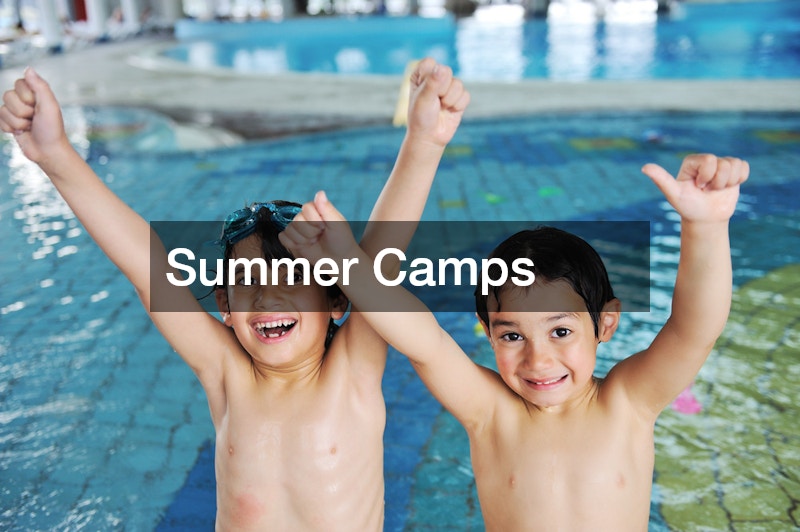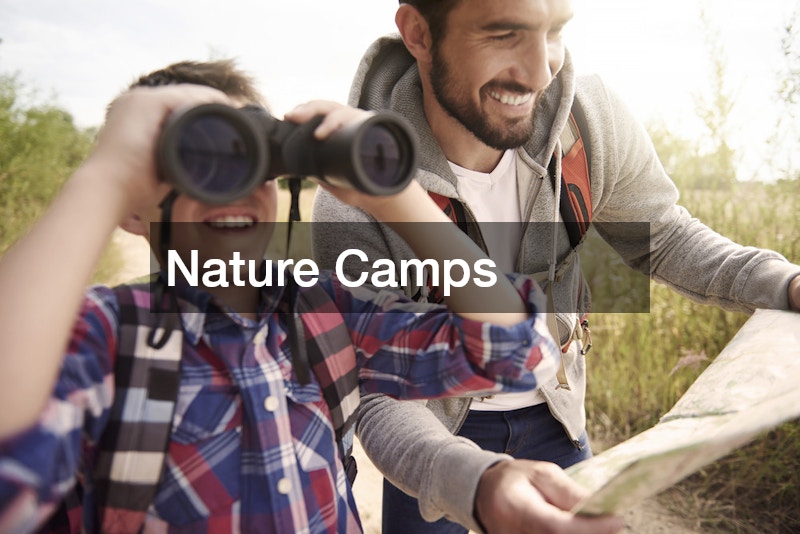Summer break is a time when children take a pause from their regular school activities, but it doesn’t have to be a time when learning stops. Engaging children in summer education opportunities not only helps in preventing learning loss but also enhances their personal growth and development. By exploring various summer programs, we can ensure that children stay curious, active, and ready to take on new challenges. This article provides a detailed look at 11 summer opportunities that are designed to boost learning and growth for kids, ensuring they make the most of their summer break.

1. Summer Camps
Summer camps offer a vibrant environment where children can learn and grow while having fun. These camps are structured to provide a mix of summer education and recreation activities, ensuring that children are engaged and learning new skills. They also often offer beds for kids with special needs, ensuring inclusivity and personalized care.
At summer camps, children can connect with peers who share similar interests, making it easier for them to build friendships and develop social skills. These interactions contribute significantly to personal development and foster a sense of community. Summer camps may include various themes such as science, arts, sports, and adventure, each designed to enrich children’s learning experiences and see them thrive.
For children with special requirements, some summer camps are specially tailored to provide the necessary facilities and professional support. Beds for kids with special needs are just one of the many accommodations these camps make to ensure all children have an enjoyable and safe experience. These camps focus on creating an inclusive environment that embraces diversity and meets every child’s unique needs.
2. STEM Programs
STEM programs are becoming increasingly popular for children over the summer as they focus on science, technology, engineering, and mathematics. These programs are designed to encourage critical thinking, problem-solving, and innovation among kids. Engaging in STEM activities during summer can instill a passion for these fields at an early age, providing children with skills that are crucial for their future careers.
Participating in STEM programs can enrich children’s understanding of the world around them through summer education. Through hands-on experiments and projects, children learn to apply theoretical knowledge in practical situations, enhancing their learning experience. Such programs often feature collaborations with industry professionals, offering children insights into real-world applications of STEM principles.
Incorporating STEM programs into summer learning ensures that children are not only prepared for the upcoming school year but also inspired to continue exploring these fields beyond the classroom. With the ever-growing demand for skills in STEM areas, early exposure through summer programs positions children for future success. The tbd opportunities provided by these programs are invaluable for fostering a lifelong love of learning.
3. Arts and Crafts Workshops
Arts and crafts workshops during the summer offer children an outlet for creativity and self-expression. These workshops allow children to explore various artistic mediums and techniques, from painting and drawing to pottery and sculpture. Engaging in arts and crafts activities not only enhances creativity but also improves fine motor skills and hand-eye coordination.
Arts and crafts workshops often offer a childcare service, providing a safe and supervised environment where children can explore their artistic potential. These workshops are designed to cater to different age groups and skill levels, ensuring that each child receives the appropriate level of guidance and support. This structured approach allows children to gain confidence in their abilities while developing new skills.
Participating in arts and crafts during a summer education camp can be incredibly rewarding for children. It enables them to express their thoughts and emotions in a constructive manner, leading to better self-awareness and emotional intelligence. These workshops also often encourage group activities, promoting teamwork and collaboration among peers—skills that are essential for personal growth and development.

4. Self Defense Classes
Learning self-defense is an empowering way for children to spend their summer. Self defense lessons not only teach children how to protect themselves but also build their confidence and discipline. Classes usually incorporate physical activities that promote fitness, agility, and coordination, ensuring children stay active during the summer months.
Participating in self defense lessons allows children to learn the value of respect and discipline. Most programs emphasize the importance of self-control and situational awareness, which are essential life skills. Instructors also foster a supportive and positive atmosphere, helping children to set personal goals and work towards achieving them.
Parents can feel reassured knowing their children are acquiring important life skills through self defense classes. In addition to physical skills, children learn about conflict resolution and the importance of avoiding confrontation when possible. These programs are more than just lessons in self-defense; they are opportunities for children to grow in confidence and character.
5. Language Immersion Programs
Language immersion programs offer a unique opportunity for children to learn a new language in an engaging and interactive environment. These programs are designed to immerse children in the language through daily activities and lessons that are fun and engaging. By fostering a bilingual or multilingual skill set, these programs enhance cognitive abilities and cultural understanding.
Participating in a language immersion program is akin to stepping into a new culture. Children gain a deeper appreciation and understanding of different cultures, which enhances their worldview. Language skills acquired during summer can improve communication abilities and lead to better performance in school language classes.
Some language programs also offer infant day cares, catering to young children and ensuring their early exposure to new languages. This early immersion can considerably boost language acquisition, as research suggests younger children are more adept at picking up new languages. The summer education provided through these programs make them an invaluable addition to summer learning opportunities.
6. Volunteer Groups
Volunteering during the summer is a way for children to learn about compassion, empathy, and civic responsibility. Joining volunteer groups helps children understand the importance of giving back to the community and fosters a sense of social responsibility. These experiences are enriching and can significantly contribute to personal development and moral growth.
Summer volunteer activities can range from environmental clean-ups and community service projects to helping at local shelters and food banks. Participating in these activities allows children to develop problem-solving skills and work as part of a team. The cooperation and interaction with diverse groups of people provide invaluable lessons in collaboration and communication.
Volunteer experiences can be deeply rewarding, leaving a lasting impact on a child’s outlook towards society. These experiences teach children the value of empathy and kindness, shaping them into more conscientious and responsible individuals. Such opportunities ensure children cultivate a spirit of service and community engagement from a young age.

7. Nature Camps
Nature camps provide an immersive experience for children to connect with the great outdoors while learning about environmental science and ecology. These camps offer summer education activities such as hiking, wildlife observation, and conservation projects, fostering a sense of stewardship for the environment. Through nature camps, children can develop a deeper appreciation for the natural world.
Many nature camps offer a toddler program, ensuring even the youngest adventurers can participate in age-appropriate activities. These programs are designed to stimulate curiosity and encourage exploration, teaching children about the interconnectedness of living things. Activities such as scavenger hunts and nature crafts ensure that learning is both fun and educational.
Nature camps can inspire children to become future advocates for the planet. By experiencing the beauty and complexity of natural ecosystems firsthand, children gain an understanding that is hard to achieve indoors. This connection to nature often leads to a commitment to sustainable living and conservation efforts as children grow.
8. Outdoor Sports Clubs
Outdoor sports clubs provide fantastic opportunities for children to remain active and healthy during the summer. Engaging in sports like soccer, basketball, or swimming not only improves physical fitness but also teaches valuable lessons in teamwork and sportsmanship. Participants often wear sports team uniforms, instilling a sense of pride and belonging.
Being part of a sports club helps children develop discipline and time management skills. Regular practice sessions and competitions require children to set goals and work hard to achieve them. These disciplines translate into academic and personal growth, making sports clubs a valuable tool for personal development and summer education.
The camaraderie and friendships formed in sports clubs can have a positive impact on a child’s social skills. Children learn to cooperate and communicate effectively with teammates, fostering a supportive and inclusive environment. These experiences contribute to building confidence, resilience, and a sense of accomplishment.
9. Reading Clubs
Reading clubs are an excellent way for children to explore literature and develop a love as part of their summer education. These clubs provide a structured environment where children can discuss books, share perspectives, and improve their reading skills. Youth groups often form the core of these clubs, emphasizing community and collaboration.
Participation in a reading club helps children broaden their horizons as they are introduced to a diverse range of genres and writing styles. By discussing and analyzing stories, children develop critical thinking skills and enhance their comprehension and vocabulary. This literary engagement is especially important during summer, reducing the risk of academic regression.
Reading clubs create a sense of belonging and foster friendships among peers who share similar interests. Children can relate to characters in books, enhancing empathy and understanding of various cultures and life situations. Ignite a lifelong passion for reading and learning!

10. Music Classes
Music classes provide children with the opportunity to develop musical skills and appreciate the art of music during the summer. These classes offer instruction in various instruments, singing, and music theory, covering everything from basic skills to advanced techniques. Participating in a music program can significantly boost cognitive development and enhance creativity.
Music programs often focus on both individual and group lessons, allowing children to gain confidence in their musical abilities. Learning to play an instrument or improve singing skills requires patience and perseverance, contributing positively to children’s personal development. Participating in performances and recitals reinforces confidence and stage presence.
The camaraderie found in group music classes fosters friendships and encourages teamwork. Children learn to collaborate on musical pieces, enhancing their ability to listen and communicate effectively. Overall, engaging in a music program can be a rewarding and enriching experience, offering children the chance to discover and nurture their musical talents.
11. Horse Camps
Horse camps offer children a unique chance to connect with animals and learn the skills involved in horse riding and care. Local horse riding lessons are a highlight of these camps, where children can learn about horsemanship and the responsibilities involved in caring for a horse. These camps blend recreation with summer education, creating an unforgettable summer experience.
Participating in horse camps can enhance a child’s confidence and sense of responsibility. The relationship developed with horses can be profoundly rewarding and provides lessons in empathy and respect for animals. Additionally, the physical activity involved in horse riding promotes fitness and coordination.
Horse camps provide a supportive and friendly environment where children can make lasting friendships. The shared experience of learning to care for and ride horses creates bonds and promotes teamwork. Overall, local horse riding lessons offered at horse camps provide an outstanding opportunity for children to engage with nature, animals, and peers.
Find the Best Program for Your Child Today!
Summer offers an array of summer educational opportunities equipped to keep children engaged and curious while enjoying a break from the classroom. From STEM programs to arts and crafts workshops, each option presents unique benefits that contribute positively to children’s growth. With the right programs, summer can be an enriching period that propels children forward in personal development and learning. By embracing these diverse summer opportunities, parents can ensure their children are continuously learning and growing. Whether through a toddler care service or sports activities, each summer education program discussed offers something invaluable for fostering a love of learning that transcends the summer months. As children explore these activities, they simultaneously build critical skills necessary for future success. Encouraging children to participate in these summer programs crafts an educational experience that blends creativity, physical activity, and cognitive development. Each opportunity explored in this article is a step towards maximizing the potential of the summer break. By keeping children engaged in fun and educational activities, we set them on the path to lifelong learning and development.
